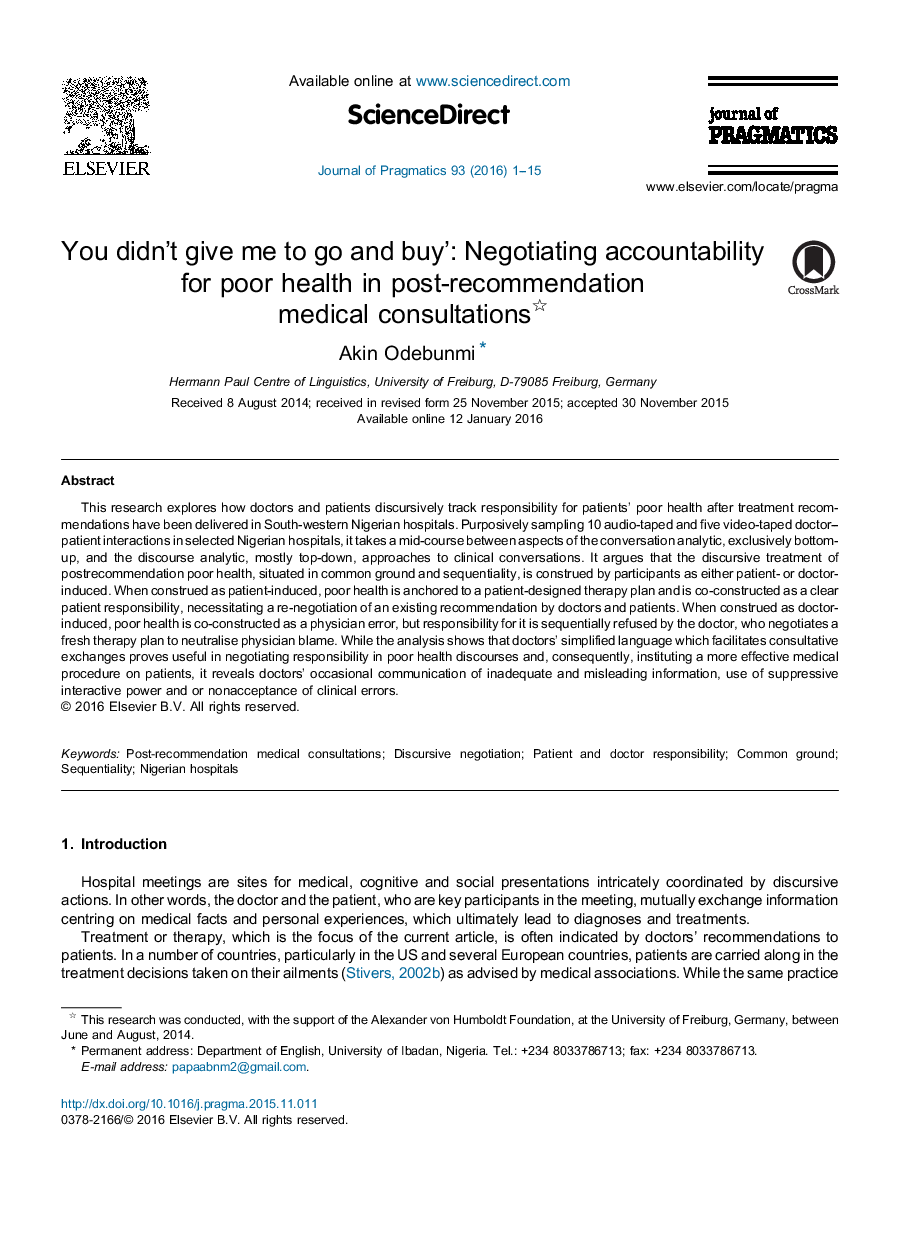| کد مقاله | کد نشریه | سال انتشار | مقاله انگلیسی | نسخه تمام متن |
|---|---|---|---|---|
| 932506 | 1474707 | 2016 | 15 صفحه PDF | دانلود رایگان |
• Post-recommendation poor health is construed as patient- or doctor-induced.
• Patient-induced poor health is co-constructed as a clear patient responsibility.
• The responsibility for doctor-induced poor health is refused by the doctor.
• Doctors’ simply language facilitates consultative exchanges and agency negotiation.
This research explores how doctors and patients discursively track responsibility for patients’ poor health after treatment recommendations have been delivered in South-western Nigerian hospitals. Purposively sampling 10 audio-taped and five video-taped doctor–patient interactions in selected Nigerian hospitals, it takes a mid-course between aspects of the conversation analytic, exclusively bottom-up, and the discourse analytic, mostly top-down, approaches to clinical conversations. It argues that the discursive treatment of postrecommendation poor health, situated in common ground and sequentiality, is construed by participants as either patient- or doctor-induced. When construed as patient-induced, poor health is anchored to a patient-designed therapy plan and is co-constructed as a clear patient responsibility, necessitating a re-negotiation of an existing recommendation by doctors and patients. When construed as doctor-induced, poor health is co-constructed as a physician error, but responsibility for it is sequentially refused by the doctor, who negotiates a fresh therapy plan to neutralise physician blame. While the analysis shows that doctors’ simplified language which facilitates consultative exchanges proves useful in negotiating responsibility in poor health discourses and, consequently, instituting a more effective medical procedure on patients, it reveals doctors’ occasional communication of inadequate and misleading information, use of suppressive interactive power and or nonacceptance of clinical errors.
Journal: Journal of Pragmatics - Volume 93, February 2016, Pages 1–15
